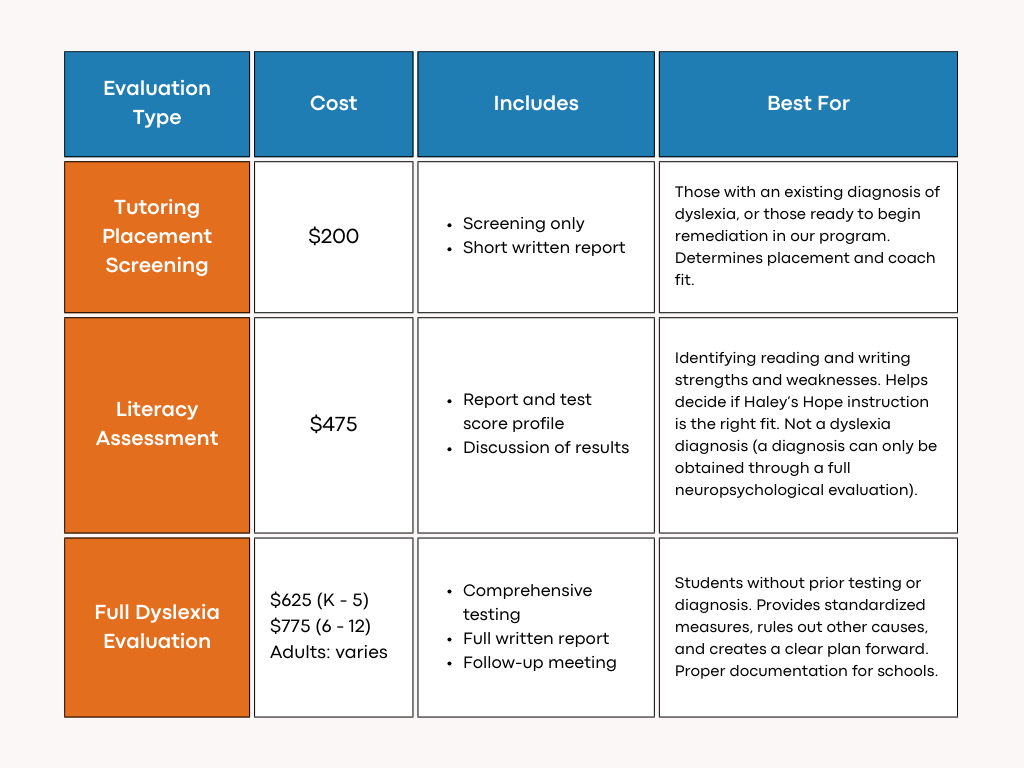Dyslexia Evaluations
Understanding why someone is struggling with reading, writing, and spelling is the first step to finding the right support. Haley’s Hope offers evaluations to clarify the situation, identify characteristics of dyslexia, and create a clear plan for success.
Key Points
Dyslexia can be identified with 92% accuracy by age 5 ½
Evaluations are helpful at any age if a child or adult struggles with reading and writing
Our founder and Dyslexia Specialist, Kari Bucholz, has been trained and evaluating since 2011
A medical diagnosis by a neuropsychologist is not required for tutoring at Haley’s Hope (and typically not covered by insurance)
We refer families to trusted professionals if deeper psychoeducational testing is needed
How to Get Started
Appointment #1: Initial Interview (Required) - $150
Evaluate family, medical, and educational history
Review school records and past testing provided
Discuss client needs
Determines the best assessment (Appointment #2)
Appointment #2: Evaluation - Cost Varies
Not sure which evaluation is right for you or your child?
Each family’s needs are unique. Some want to begin tutoring immediately, while others need more detailed answers. This chart quickly compares our evaluation options so you can choose the best next step.
Evaluation options at a glance:
If you have questions or would like to make the initial interview appointment, please call us at 701-373-0397, or complete the form below to receive more information.





